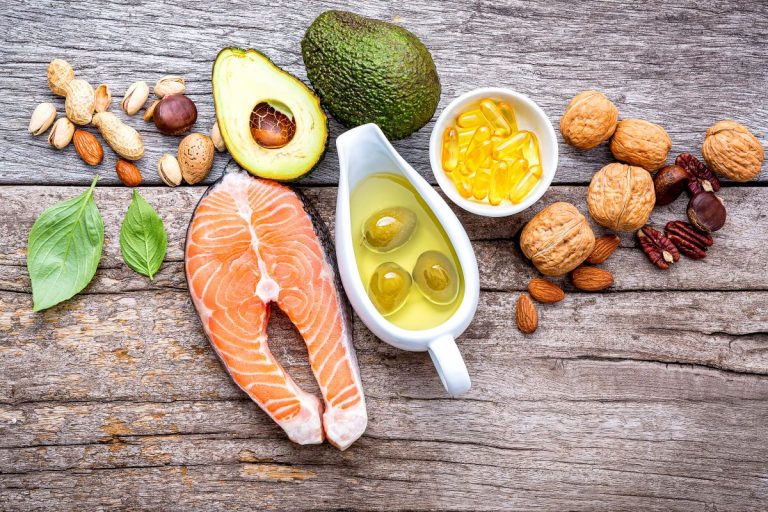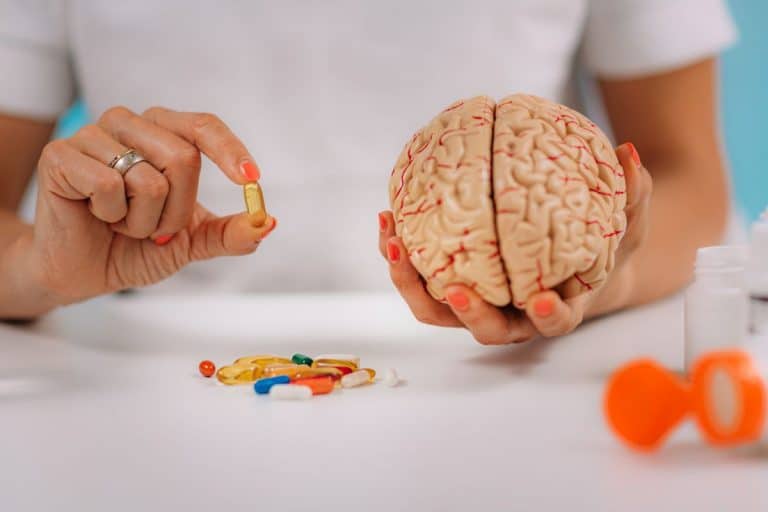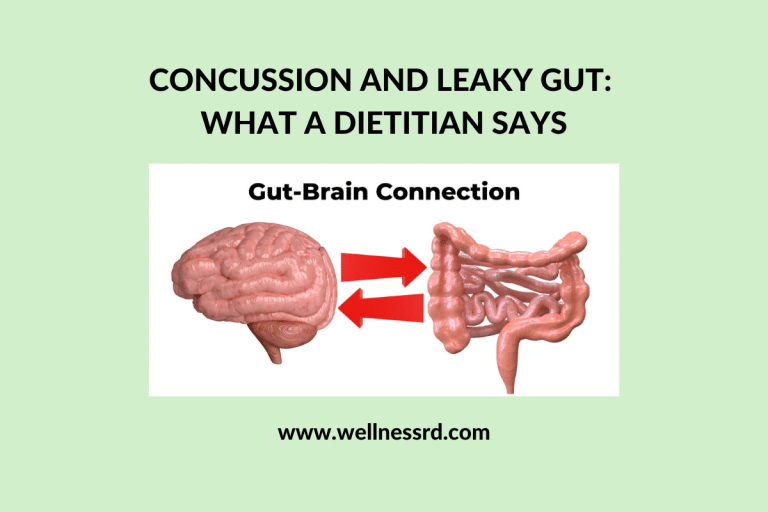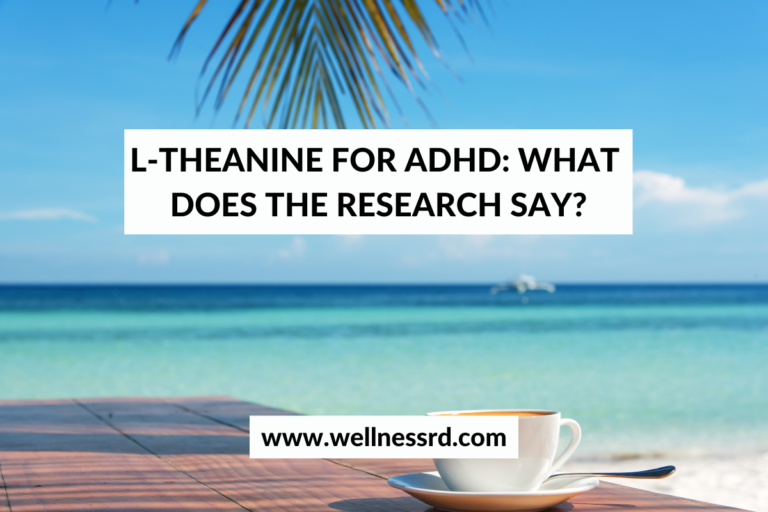Good Food Good Mood: Begin to Improve your Mood and Support Your Brain Health
Good food, good mood: What foods improve your mood and support your brain health?
There are lots of studies on the impact of food and chronic diseases however, did you know that food can also affect your mental health?
Yes! The food you eat does affect your mood, energy, and overall wellness.
What nutrients and foods affect anxiety, depression, and other mental health disorders?
In this article, we will explore the connection between nutrition and mental health and discuss which mood boosting nutrients and foods to incorporate in your nutrition plan.
This information is for educational purposes only. As with any medical advice, always check with your doctor or healthcare professional for personal and age-appropriate recommendations.
Keep reading for more details.
Want a copy of this article? Click here to download a copy of this article.
Table of Contents
Good Food Good Mood Connection
What food should you eat to improve your mood?
I often tell my clients to eat protein, fiber, and fat (PFF), but what about the research and details?
A recent clinical trial of 75 men diagnosed with depression followed the Mediterranean diet for 12 weeks with the guidance of a nutritionist. Results showed a significant reduction in depressive symptoms with no side effects (1).
What did this Mediterranean diet consist of in the study?
- Vegetables
- Beans
- Whole grains
- Oily fish like salmon
- Olive oil
- Raw unsalted nuts
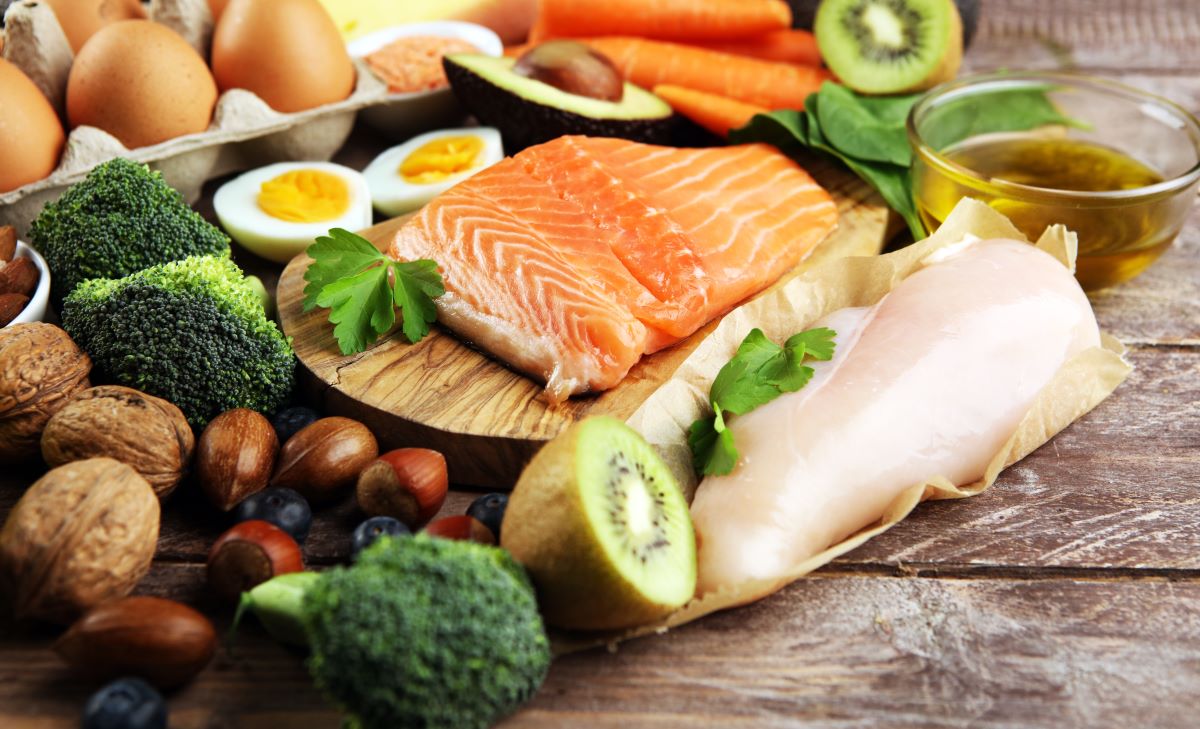
What is the relationship between food and mood?
A new review study shows neuroinflammation (inflammation in the brain or spinal cord) may be the key to targeting therapeutic treatments for major depressive disorder (2).
So what does this have to do with food?
Impact of Your Gut Health on Your Mood
Your gut and brain have a bidirectional relationship via the vagus nerve (the vagus nerve runs from the brain to the intestine). There are trillions of organisms in your gut that support digestion, immune system, and even produce neurotransmitters in your brain like serotonin (the feel good hormone) and GABA (which can help to calm the mind) (3).
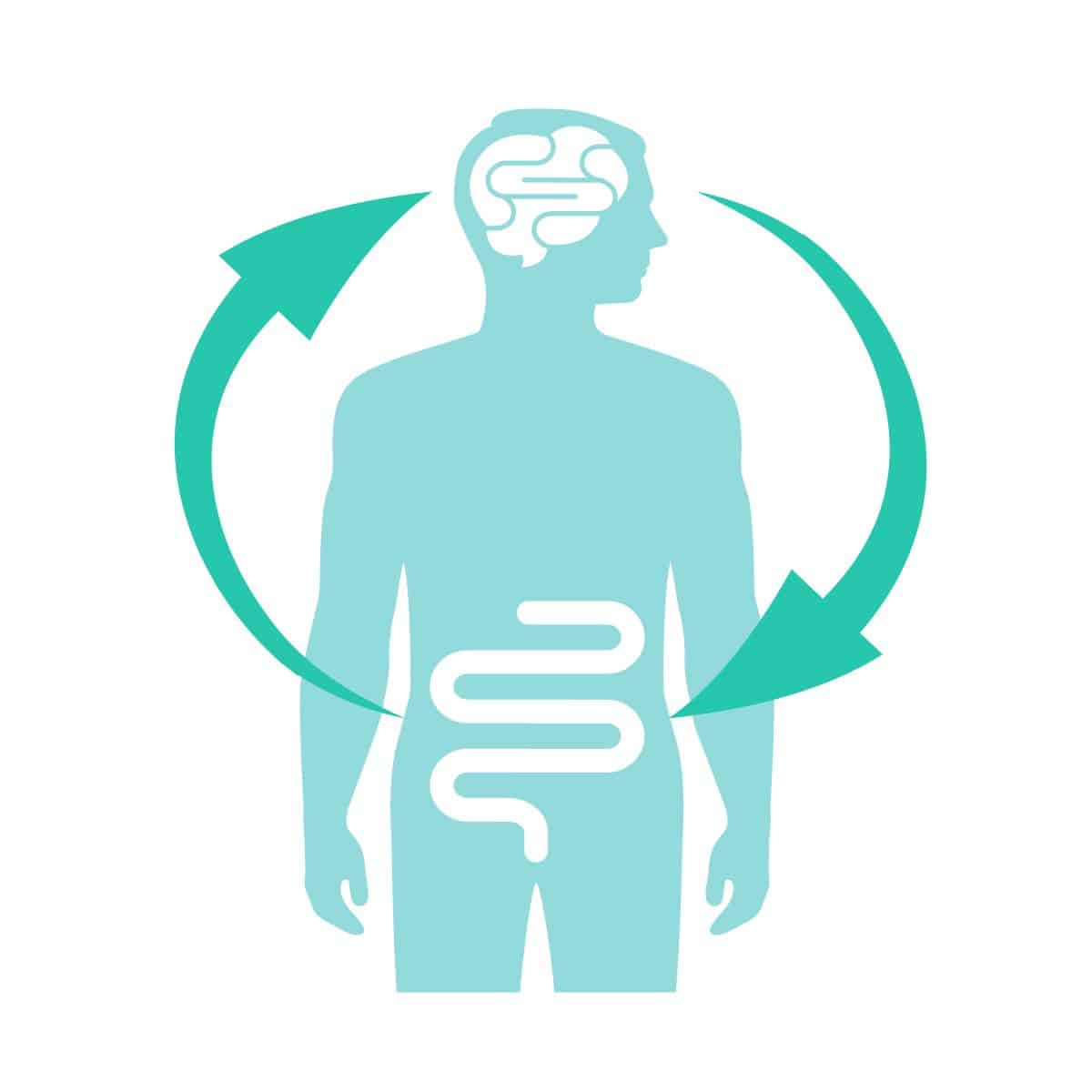
A diet of processed foods contributes to a disruption in the balance of your gut bacteria. This dysfunctional gut can send toxins to the brain and contribute to inflammation. Inflammation in the brain can lead to symptoms like brain fog, anxiety, and depression.
An inflammatory response and a decrease in gut barrier function, also referred to as “leaky gut”, has been associated with eating diets low in fiber, high in saturated fats, refined sugar and processed foods. This is why the health of your gut and following the 5 R protocol for gut healing may affect your mood.
Healthy gut bacteria produce short chain fatty acids (SCFA’S like butyrate, acetate, and propionate) that stimulate an enzyme to make serotonin (4). Yes, this can help to increase the feel good hormone serotonin.
Evidence is showing that dopamine (which influences decision making, attention, memory, motivation, and the reward system) is decreased when the gut-brain axis is compromised contributing to neuropsychiatric disorders like depression and anxiety (5).
Interestingly, this food mood concept was recently studied and in 2020 showed mood (how you are feeling at that moment of eating) affects food choices and intake but also, good healthy food influences mood and chronic disease prevention (6).
Overall, ultra processed foods increase depression and other mental health disorders (7).
A healthy diet is a modifiable factor for the diversity, abundance, and function of your gut microbiome which influences your mental well being (8).
So, choose mood enhancing foods to support your mental health.
What Nutrients Support a Good Mood?
The Antidepressant Food Score (AFS) was published in 2018 and reviewed which foods had the highest nutrient density for the top 12 antidepressant nutrients (9):
- Folate (vitamin B9)
- Iron
- Magnesium
- Omega-3 fatty acids (EPA and DHA)
- Potassium
- Selenium
- Thiamine
- Vitamin A
- Vitamin B6
- Vitamin B12
- Vitamin C
- Zinc
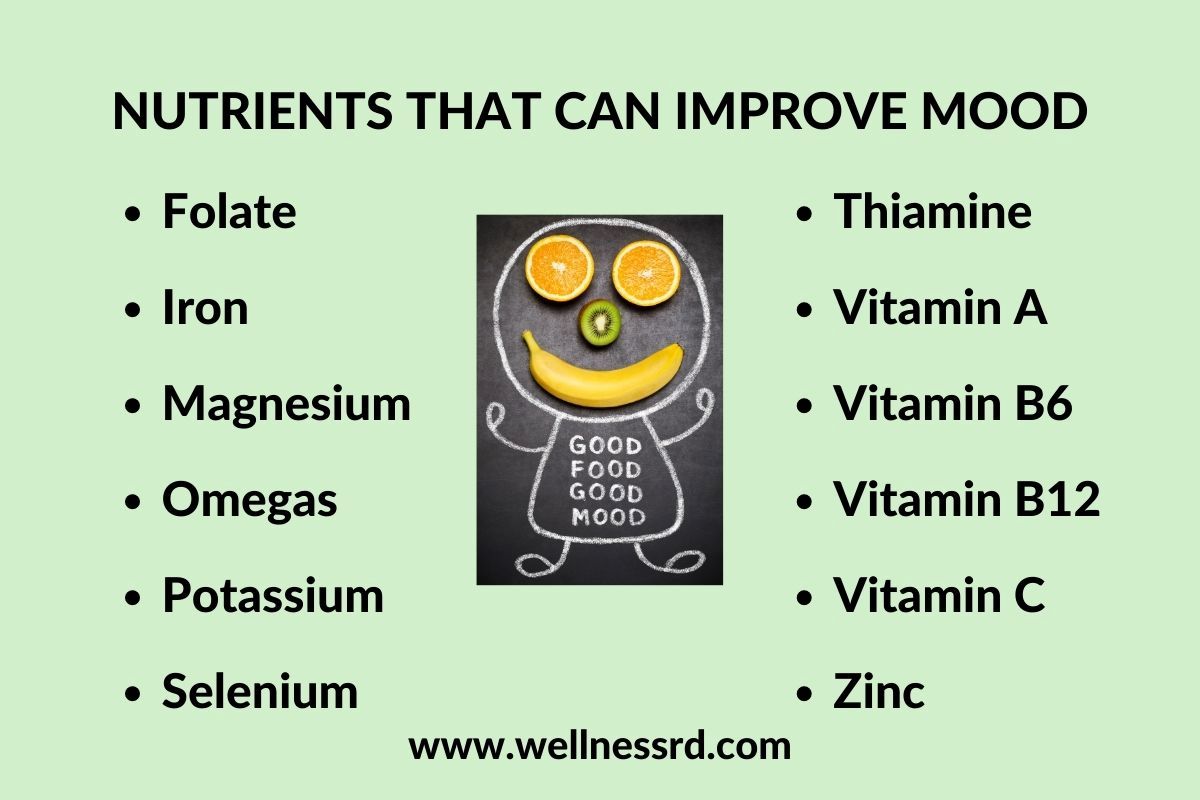
The best antidepressant foods according to the AFS were:
- Bivalves, oysters and mussels
- Seafood like crab, smelt, tuna, trout, salmon
- Organ meats
- Leafy greens
- Lettuces
- Peppers
- Cruciferous vegetables
Recently, a consortium of mental health and nutrition researchers recommended “nutritional psychiatry” be included in mental health care. Nutritional Psychiatry is using food and supplements to support mental health disorders.
Let’s take a deeper into some of the important nutrients for mental health.
Protein for Neurotransmitters
Every cell in your body contains protein.
Protein is important for brain health in a few ways:
- Protein is made up of amino acids. Adequate consumption of amino acids is essential for neurotransmitter production.
- Consuming protein at each meal that contains tryptophan (an amino acid in protein) can increase serotonin production.
- The glycemic index measures how fast your body breaks down and absorbs carbohydrates. This will affect how quickly your blood glucose (sugar) will rise. Protein intake stabilizes your blood sugar and maintaining glucose control by choosing low glycemic index foods has shown to improve neurodegenerative disorders (10).
In the British Medical Journal study of 74 schoolchildren, their behaviors were evaluated after eating a low glycemic index, high protein meal for breakfast. The study reported that this breakfast improved mood, behaviors and learning (11).
Best protein sources include wild seafood, organ meats, as well as pasture raised or grass fed meats, poultry, and eggs. Plant sources may include legumes, nuts, and seeds.
Protein is good for the brain.
Omega-3 for Brain Function
Your brains is made of about 60% fat and essential fatty acids (EFA) are critical for brain health. EFA’s cannot be synthesized by the body so must be obtained from the diet or supplements (12).
The EFA’s are found in fatty fish like salmon, mackerel, anchovies, sardines, and herring (sometimes called SMASH), and plant sources like flaxseeds and walnuts.
A review in 2020 concluded that marine omega-3’s plays a role in prevention and treatment of major depressive disorder and reducing depression symptoms. Some of the behavior and brain disorders that may benefit from taking omega-3’s are (13):
- Attention deficit hyperactivity disorder (ADHD)
- Autism
- Depression
- Borderline personality disorder (mood instability and impulsive aggression)
- Schizophrenia
- Hostility
- Anxiety
- Bipolar disorder
- Seasonal affective disorder
A meta-analysis showed evidence to support the use of an omega-3 supplement with an EPA content at greater than 60% to improve depression (14).
Omega-3’s fatty acids are essential for brain health and have shown to reduce depression and anxiety.
Magnesium: The Miracle Mineral
The miracle mineral magnesium is involved in over 600 pathways in the body including the heart, muscle, nerve, cell, and brain (15). It helps to regulate mood and reduce stress and anxiety (16).
Rich sources of magnesium include:
- Almonds
- Avocados
- Bananas
- Black beans
- Cashews
- Chia seeds
- Dairy
- Peanuts
- Pumpkin
- Soybeans
- Spinach
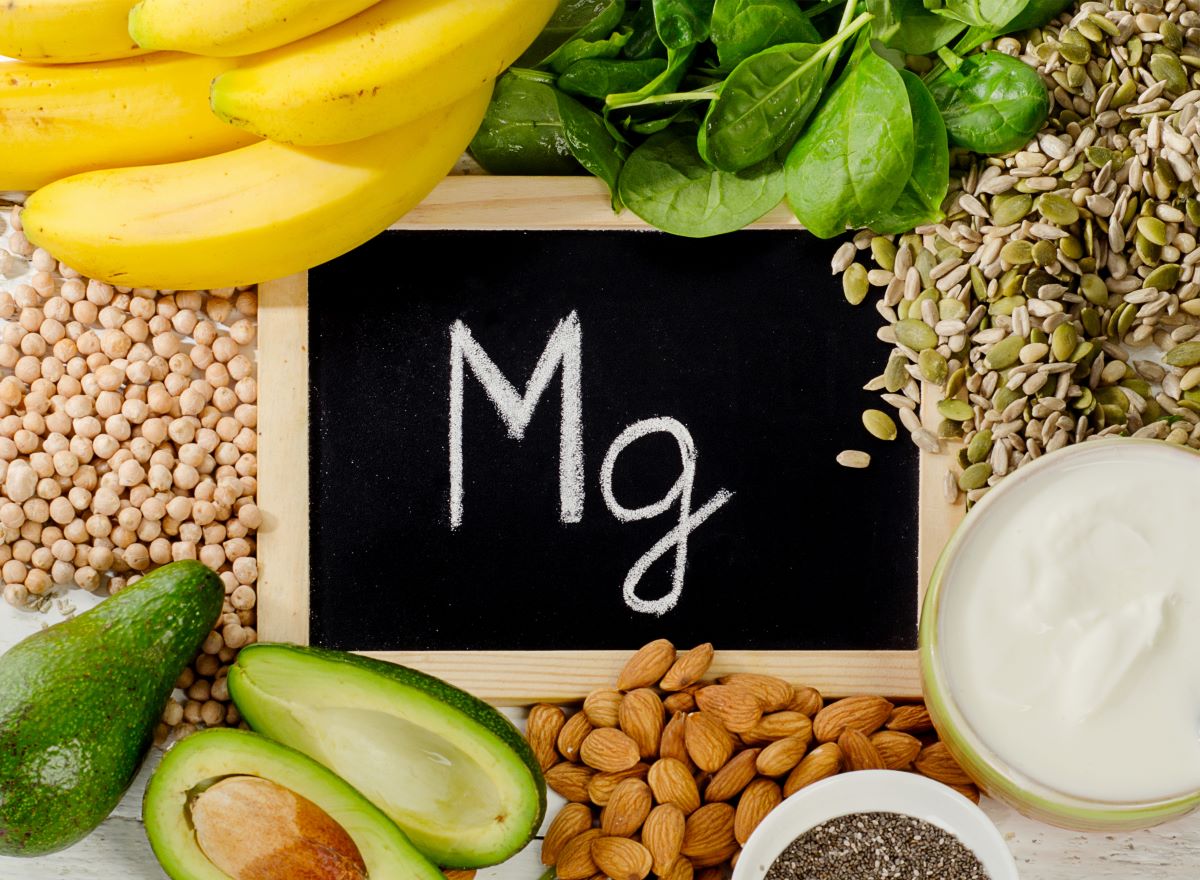
Supplements are also beneficial to keep your magnesium levels optimized.
Magnesium glycinate is one of my favorite forms of supplemental magnesium as it is well absorbed. Magnesium threonate crosses the blood brain barrier and plays a role in learning, memory, and cognition (17).
B Vitamins for Cognition and Energy
B vitamins are important for optimal brain function, reducing stress, providing energy, and improving cognition and mood (18, 19).
According to a study in 2021, vegans and vegetarians with depression may benefit from a vitamin B6, B12, and folate supplement to support brain health (20).
Food sources of B vitamins include whole grains, leafy greens, beans, nuts, and seeds. Animal products like meats, poultry, eggs, fish, and dairy products are the main sources of vitamin B12.
Vitamin D for Serotonin
Optimal vitamin D is important for general health including the immune system, bone, and brain health.
Some important facts about vitamin D:
- Receptors for vitamin D are on many cells in our body (helping vitamin D work).
- The vitamin D receptors regulate more than 800 genes.
- Vitamin D is a neurotransmitter precursor to serotonin (needed to make serotonin).
- It helps make the enzyme which converts tryptophan to serotonin.
Food sources of vitamin D are fairly limited and include fatty fish, fortified foods, liver, and egg yolks.
Your skin may also produce vitamin D from exposure to the sun however, if you have a vitamin D genetic variation, your body may not absorb it very well. Supplementation is often necessary to obtain an optimal serum level around 50-70 ng/mL.
A systematic review and meta-analysis in 2022 concluded that vitamin D supplementation of greater than 2000 IUs per day decreased depression symptoms (21).
Research suggests vitamin D deficiency may play a role in sleep disorders (22). We all know how lack of sleep can affect mood.
In a review, most of the clinical studies have indicated that vitamin D supplementation reduces symptoms of depression and anxiety (23).
Always check your vitamin D levels prior to supplementation. Remember to add magnesium and vitamin K as cofactors to help with absorption.
Zinc for Neurotransmitters
Zinc plays a critical role in brain health including the production of neurotransmitters like dopamine, norepinephrine, and serotonin and shows protection against depression (24).
According to the NIH (National Institutes of Health), foods rich in zinc include:
- Oysters
- Beef
- Crab
- Pumpkin seeds
- Pork
- Turkey
- Shrimp
- Lentils
A study in 2020 with 125 participants showed that zinc supplementation was effective in decreasing depression scores (25)
Another study in 2022 showed that zinc supplementation had a therapeutic benefit in reducing depression (26).
Certain types of supplements like zinc carnosine are also beneficial for gut health and the gut-brain axis.
Prebiotics and Probiotics for Gut-Brain Health
A study in 2022 looked at the link between the microbiome and depression providing evidence that changes in the gut flora may trigger depression (27).
Consuming prebiotic and probiotics foods as well as supplements can also improve your beneficial gut bacteria (28). An increase in this type of dietary fiber may increase butyrate and improve mood.
Prebiotic foods you should include in your nutrition plan include bananas, chicory root, garlic, Jerusalem artichokes, and onion.
Probiotic foods and drinks are kefir, kimchi, kombucha, miso, sauerkraut, tempeh, and yogurt.
There are many factors which may contribute to mood imbalances including your genetics, your lifestyle, and the environment as well as your nutritional status.
Good Food, Good Mood Plan
What are foods that boost your mood?
In a recent study, people who consumed more non-refined grains and vegetables show the lowest depression and anxiety scores (29).
So what should you eat to improve your mood?
- Eat protein at each meal.
- Incorporate lots of vegetables, fruit, and fiber in your nutrition plan.
- Include omega-3 fatty acid rich foods salmon, mackerel, anchovies, sardines, and herring.
- Avoid processed and refined foods that can affect your gut microbiome.
Overall, diets rich in fiber and omega 3’s are recommended to reduce depression, anxiety and stress (30).
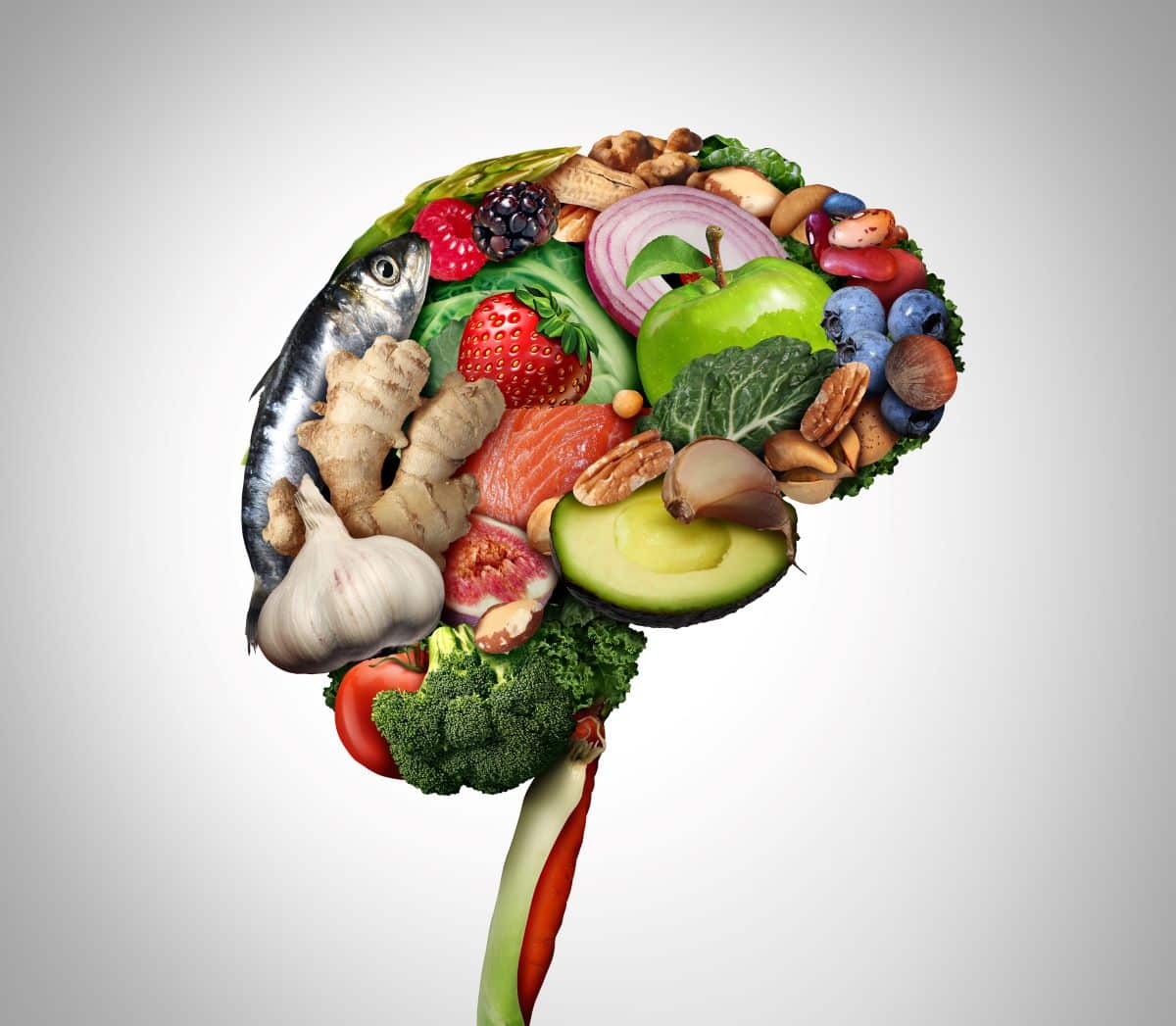
MRT and the LEAP Protocol for Your Good Food Good Mood Diet
Food sensitivities have been increasing and contribute to many symptoms in the gut and brain (31).
If you think you may have food sensitivities, the MRT (Mediator Release Test) and LEAP protocol can provide a roadmap to create a personalized anti-inflammatory nutrition plan to reduce inflammation.
Food sensitivity testing and a gut healing protocol can reduce symptoms including improving mood in just a couple weeks when the LEAP and gut healing protocols are followed.
Final Thoughts
The cause of mental illness is multifactorial and may persist independent of nutritional status so always consult with your healthcare professional for personal recommendations.
A healthy, balanced diet is important for both physical and mental health.
The Mediterranean diet has shown to improve mood and reduce depression scores.
Your gut and brain have a bidirectional relationship, so it is important to support both of them for a healthy gut and brain.
Eating healthy food and taking appropriate supplements are modifiable factors to optimize the diversity, abundance, and function of your gut microbiome and support your mental well being.
Important nutrients for improving mood include folate, iron, omega 3’s, magnesium, potassium, selenium, thiamine, vitamin A, vitamin B6, vitamin B12, vitamin C, and zinc.
Incorporate foods high in these nutrients into your daily nutrition plan.
Check for food sensitivities to reduce inflammation and improve mood.
In summary, good nutrition influences physical health with chronic disease prevention and good food can support mental well-being.
Eating good food can lead to a good mood!
Read the blog for more information on functional nutrition.
Test don’t guess.
Contact me to schedule an appointment to review your personalized nutritional health.
© Amy Archer RDN, CLT, CHWC


